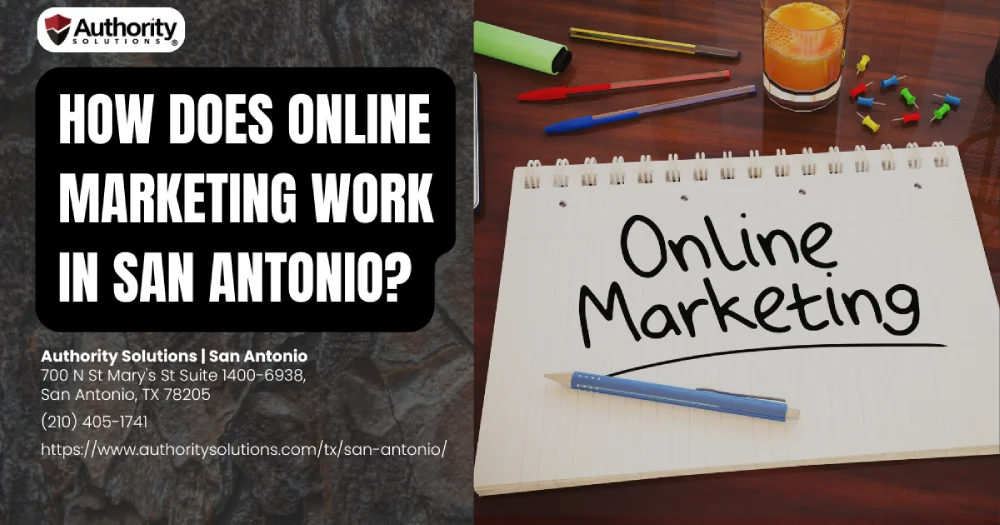Building A Strong Online Presence: Leveraging Internet Marketing Services
If you want to establish a strong online presence for your business, then you need to start leveraging internet marketing services. In today's digital age, having a website is not enough if you want to attract and engage potential customers. You need to create a comprehensive strategy that includes search engine optimization, content creation, and continuous monitoring and improvement.
So how do you build an effective online presence? It starts with identifying your target audience. Who are they? What are their needs and wants? Once you have this information, you can develop a strategy that speaks directly to them. This is where internet marketing services come in - they can help you reach your target audience through various channels such as social media, email marketing, and paid advertising. With the right approach, you can establish yourself as an authority in your industry and attract loyal customers who are eager to do business with you.
Identify Your Target Audience
You need to figure out who you're trying to reach and connect with, so you can create content that really resonates with them and draws them in. The first step is to define your target audience by analyzing their needs, preferences, and behaviors. This includes considering factors such as age, gender, location, income level, education level, and interests.
Once you have a clear understanding of your target audience's characteristics, it will be easier to craft messages that speak directly to their needs and wants. For example, if your target audience is young adults interested in fitness and wellness trends, you may want to focus on creating content around healthy recipes or workout routines that are popular among this demographic.
Remember that identifying your target audience is not a one-time task; it requires ongoing research and analysis as consumer behavior changes over time. By continually refining your understanding of who your ideal customer is, you'll be better equipped to develop effective marketing strategies that resonate with them. Now let's move on the next section about developing a comprehensive internet marketing strategy.
Develop a Comprehensive Internet Marketing Strategy
To develop a comprehensive internet marketing strategy, you need to define your goals and objectives, determine your budget and resource allocation, and choose the right internet marketing channels. Start by setting clear goals that align with your business objectives and target audience. Next, assess how much you can afford to spend on internet marketing efforts and allocate resources accordingly. Lastly, choose the most effective channels for reaching your audience based on their preferences and behavior online.
Define Your Goals and Objectives
When defining your goals and objectives for building a strong online presence, it's important to clearly outline what you want to achieve and how you plan to do it. This includes identifying your target audience, understanding their needs and preferences, and determining the key performance indicators (KPIs) that will help measure the success of your internet marketing efforts.
Your goals should be specific, measurable, achievable, relevant, and time-bound (SMART). For example, if you're launching a new e-commerce website, your goal might be to increase sales by 20% in the next six months through search engine optimization (SEO), pay-per-click (PPC) advertising, social media marketing, email marketing campaigns or other internet marketing strategies. By setting clear goals and objectives upfront, you'll have a roadmap for success that will guide your decision-making process throughout the internet marketing campaign. Now let's move on to determining your budget and resource allocation for achieving these goals.
Determine Your Budget and Resource Allocation
Now it's time to figure out how much money and resources you'll need to allocate towards achieving your goals for your online presence. Your budget will depend on the size of your business, the industry you're in, and how aggressive you want to be with your online marketing efforts. A good rule of thumb is to allocate 7-10% of your overall revenue towards marketing. However, if you're a smaller business or just starting out, that percentage may need to be higher in order to build a strong foundation.
In addition to allocating funds towards internet marketing services, you'll also need to determine what resources you have available. This includes not only money but also time and manpower. Are there team members who can help with content creation or social media management? Will you need to hire an outside agency for certain tasks? Take stock of what resources are available before determining how best to allocate them towards achieving your online presence goals.Choosing the right internet marketing channels will depend on both your budget and resource allocation as well as the specific needs and preferences of your target audience.
Choose the Right Internet Marketing Channels
Maximize your reach and connect with your target audience by selecting the most effective channels for promoting your brand. Start by understanding the demographics of your audience, their online behavior, and preferences. This will help you determine which channels to focus on, whether it be social media platforms like Facebook or Instagram, search engines like Google or Bing, or email marketing.
Once you have identified the channels that are most likely to reach your target audience, it's important to create engaging content that resonates with them. This can include blog posts, videos, images, infographics, and more. By providing valuable content that addresses their pain points and interests, you can establish yourself as a thought leader in your industry and build trust with potential customers. With effective internet marketing strategies in place for multiple channels of outreach you'll be able to maximize visibility; from there we can move onto optimizing your website for search engines.
Optimize Your Website for Search Engines
By optimizing your website for search engines, you can improve its visibility and increase traffic to your site. Here are some tips on how to do it:
- Conduct keyword research: Use tools like Google Keyword Planner or SEMrush to identify relevant keywords with high search volume. Include these keywords naturally in your website's content, title tags, meta descriptions, and URLs.
- Improve website speed: A slow-loading website can negatively impact user experience and search engine rankings. Use tools like GTmetrix or Pingdom to analyze your website's speed performance and make necessary improvements.
- Use header tags: Break up your content using header tags (H1-H6) to make it easier for users and search engines to understand the structure of your page.
In addition, don't forget about other on-page optimization tactics such as creating a sitemap, adding alt text descriptions for images, and including internal links throughout your site.
Remember that optimizing your website is just one piece of the puzzle when it comes to building a strong online presence. In the next section about creating engaging and relevant content, we'll discuss how you can use this optimized website as a foundation for attracting and retaining visitors through valuable content.
Create Engaging and Relevant Content
To capture the attention of your target audience and keep them coming back for more, you need to focus on creating engaging and relevant content that speaks directly to their interests and needs. Your content should be informative, insightful, and easy-to-read. You should aim to provide value to your readers by sharing your knowledge and expertise in a way that is both entertaining and educational.
One way to create engaging content is by developing a strong brand voice that resonates with your target audience. Your brand voice should reflect your company's personality, values, and mission. It should also be consistent across all of your marketing channels, from social media posts to blog articles.
Another important aspect of creating engaging content is knowing what types of topics interest your target audience. You can use tools like Google Analytics or social media insights to gain insight into the types of keywords or topics that are popular among your followers. By creating content that addresses these topics or uses these keywords strategically, you can increase the chances of attracting new visitors and retaining existing ones.
By focusing on creating engaging and relevant content that speaks directly to your target audience's interests and needs, you can build a strong online presence that drives traffic and increases conversions. However, it's important to continuously monitor and improve your online presence in order to stay ahead of the competition. In the next section, we'll discuss how you can do this effectively without breaking the bank.
Continuously Monitor and Improve Your Online Presence
If you want to stay ahead of the competition and make sure your online brand is always evolving, it's crucial to continuously monitor and improve your presence. This means keeping track of how your website and social media accounts are performing, analyzing customer feedback and engagement metrics, and staying up-to-date on the latest digital marketing trends.
One way to monitor your online presence is by regularly conducting a website audit. This can help identify any technical issues that may be affecting user experience or search engine ranking. It's also important to keep an eye on social media engagement metrics such as likes, shares, comments, and follower growth. By tracking these metrics over time, you can gain insights into what content resonates with your audience.
Improving your online presence requires ongoing effort and experimentation. This could involve tweaking website design elements for better usability or testing different types of content on social media to see what generates the most engagement. Staying up-to-date on digital marketing best practices can also help ensure you're making the most effective use of available tools and strategies. By putting in the work to continuously monitor and improve your online presence, you'll be well-positioned to attract new customers and stay competitive in today's digital landscape.
Frequently Asked Questions
What are some effective online marketing strategies for small businesses?
To effectively market your small business online, focus on creating valuable content, optimizing your website for search engines, utilizing social media platforms, and building relationships with customers through email marketing. Consistency is key in maintaining a strong online presence.
How can social media platforms be used to improve online presence?
To improve your online presence, use social media platforms to engage with customers, build relationships, and establish your brand. Share valuable content regularly and respond promptly to comments and messages for maximum impact.
What is the importance of mobile optimization for websites?
Mobile optimization is crucial for websites as most internet traffic comes from mobile devices. You need to ensure your website is easy to navigate on smaller screens, loads quickly, and has clear calls-to-action. Neglecting mobile optimization can lead to a poor user experience and lost opportunities for engagement and conversions.
How can email marketing campaigns be utilized to reach a wider audience?
To reach a wider audience, you can leverage email marketing campaigns. Use catchy subject lines and personalized content to engage your subscribers. Include clear calls-to-action that encourage recipients to take action.
What are some common mistakes to avoid when building an online presence?
Avoid common mistakes when building an online presence by being consistent with your brand, providing valuable content, optimizing for mobile devices, and engaging with your audience. Keep up-to-date with trends and adjust strategies accordingly.
Conclusion
Congratulations! You now have the tools to build a strong online presence that can help your business thrive in today's digital age. By identifying your target audience, developing a comprehensive internet marketing strategy, optimizing your website for search engines, creating engaging and relevant content, and continuously monitoring and improving your online presence, you are well on your way to success.
Remember to always keep up with the latest trends and advancements in internet marketing services to stay ahead of the competition. And don't forget that building a strong online presence takes time and effort. With dedication and perseverance, you can establish an impressive online reputation that will attract more customers and help grow your business. Good luck!









